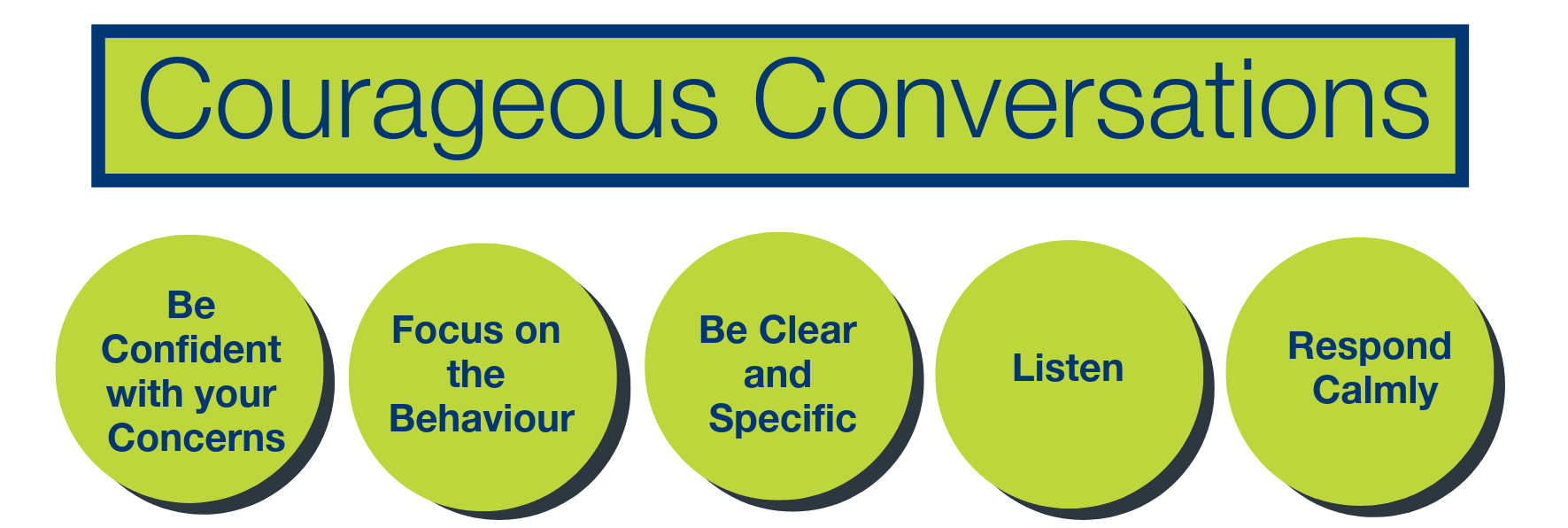
Courageous Conversation Tips & Training
From time to time we all encounter situations where we dislike a person’s behaviour and we feel we need to say something. It may be that your job requires you to have these conversations with people on a regular basis. A common myth is that raising the issue might make things worse, however, a carefully constructed conversation might save things from getting worse.
Constructive Conversations Training - Wellbeing Calendar Hot Topic
To arrange a training session for your organisation, please speak to your Relationship Manager.
Here are some tips for initiating a potentially difficult conversation:

- Be Confident with your Concerns
It can be easy to stop ourselves from raising concerns by minimising their importance. For example, we may tell ourselves we are “just being silly” or we are “being too sensitive” or “it’s not such a big deal really”. If it is impacting on you or someone else negatively, it is important. Be clear with yourself about the reasons why you are initiating the conversation.
- Focus on the Behaviour
Let the person know that it is their behaviour which is upsetting or concerning to you. Be careful not to label the person, for example instead of saying “you are selfish and lazy” you could say “when you leave me to clean up everything I feel let down because I am doing it all alone without any help”.
- Be Clear and Specific
Anxiety about how someone might react can lead to messages being “watered-down”. We may give a lot of positive feedback in amongst the negative, or we might talk generally to a group about behaviour that bothers us without speaking directly to the person involved. The risk is that your message will not be heard by them.
- Listen
This can sometimes be the hard part because people can be defensive or angry after hearing your concerns and your feedback. They may attack. They may deny that there’s an issue. They may even convince you it’s “all in your head”. Let them talk. Don’t interrupt, explain, justify or defend. First, listen. There will be time to respond later.
- Respond Calmly
Depending on how the person has reacted to your concerns remaining calm can be tricky, however, focus on clarifying the factual accuracies of what the person has said. Their feelings are subjective and you can’t change these. The person may be angry with you for some time. Confidently re-state your concerns. If you can, come to a resolution or compromise. You may need some time to think about what each other has said.


